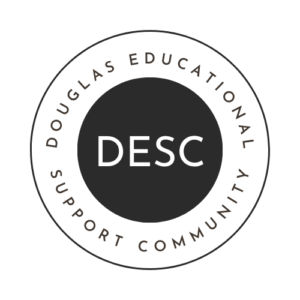
What does it mean to be human in an age of rapid technological growth? As artificial intelligence becomes a dominant force shaping how we communicate, learn, and interpret the world, conversations about what to preserve of our shared humanity are becoming essential.
In a recent dialogue, Douglas College’s Richa Dwor shared her reflections on human dignity, critical thinking, and why reading on paper might be a small but powerful act of resistance.
Richa currently serves as the chair of the English department, and the coordinator of the Research and Innovation Office for the college. A scholar of Victorian literature, she focuses on Jewish women’s writing from that period, and also religion and affect; categories of emotions that people feel within and through religious experience and in religious communities.
“If at a bare minimum, if what we can do is look at another person and say you can be in this world, and you can be in the world with dignity, and maybe that’s all I can give you, because I can’t understand your way of thinking… I think that, at bare minimum, is humanity. Humanism. It’s extending a kind of tolerance towards one another. To me, that’s what, at bare minimum, that’s what tolerance looks like. And then you can build onto that with compassion, empathy, kindness, generosity.”
Critical Capacities We Can’t Afford to Lose
“Firstly, we need to retain our critical competencies, our ways of thinking, our modes of thought that are grounded in the humanities. So by this, I mean the ability to understand and hold in conversation multiple points of view. The ability to think historically, and to understand the progress of ideas and events as they have occurred, and to recognize that our own moment is not inevitable, and that its impact on the future is hard to understand.”
“And the other thing we need is access to artifacts of the past. And to preserve what we have of our shared cultural heritage.”
On Interpretation, Paraphrase, and Translation
One of the richest parts of our conversation centered on language, reading, and interpretation. Richa emphasized:
“Paraphrase and close reading are exactly what I teach students to do. It’s the biggest part of the intellectual work that I’m guiding students to develop, which is… once you’ve found [a source], reading it and understanding it. This cannot be lost. We cannot let the machine become the interpreter.”
“If we no longer perform our own act of summary and paraphrase, it means that we no longer are able to engage in close reading of a source sufficient to develop our own comprehension of it. And that is at the root of humanistic ways of thinking.”
“You can’t have true discourse with AI. The interpreter is still a person, a human in the community… even if there’s an interpreter, it should still be possible for others in the community to themselves engage in their own act of interpretation, right? Which may challenge what the interpreter has delivered.”
“If I were to publish material from another language, and I wanted it translated into English, I would never, ever, ever, ever publish an AI translation. I would always hire a human translator. So, it’s one of those things that is useful, but human act of translation are irreplaceable.”
Asked for a practical takeaway, Richa’s advice was clear:
“Read a book. On paper. Just sit down and read the newspaper, or read a book on paper, and just think about it a bit. Read the next one. Yeah, just, just, time and concentration with text, so that you can flex your capacity for paying attention. And for reflection.”
As the conversation turned more personal, both of us reflected on moments of identity change. Richa offered this poignant insight:
“Life is not linear. We are living in a state of chaos. As Joan Didion says, we tell ourselves stories in order to live, so all of the stories that we tell ourselves are just attempts to impose a kind of rational narrative sequence on what is otherwise just one damn thing after another. And there’s a kind of peace that comes from getting rid of that narrative and just recognizing that it’s just one thing after another, and all I can do to center myself is just, like, just try to be good, and be good to other people, and just, like, ride it.”
And perhaps that is the heart of the matter. Technologies will evolve. But the work of recognizing, interpreting, and relating — remains human.
About this series: “Rescuing Our Humanity” is a dialogue series hosted through the Douglas Educational Support Community (DESC), exploring what it means to be human in an age of rapid technological transformation. Each conversation invites faculty, staff, and students to reflect on what we must protect, preserve, or restore of our shared humanity.

Leave a Reply